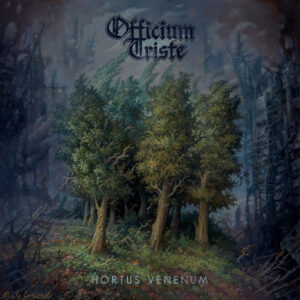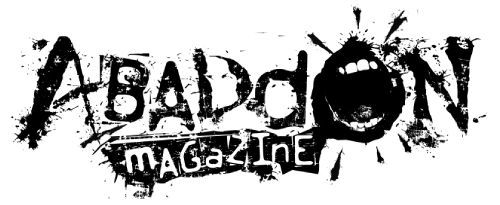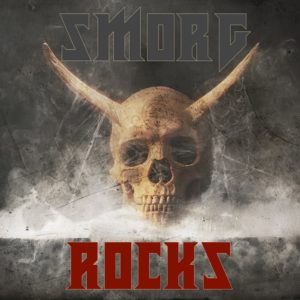 Label: Transcending Obscurity Records
Label: Transcending Obscurity Records
Date: September 6th, 2024
Admit it, you wouldn’t know it was dead autumn if there wasn’t for your friendly weatherman, Klark Kentishly disguised as a reviewer. So, let’s celebrate, the autumn, not my clever disguise, by putting on some doom metal. Let’s slowly wither away at the sound of the new Officium Triste record.
These Dutch veterans are stepping into the fourth decade of existence with “Hortus Venenum”, their seventh full length album. Some things go without saying. Their brand of death / doom metal is well established over the years, so there’s no question of whether they can pull it off. They’ve long been successful at grasping the correct atmosphere and burying it within the layers of heavy guitars, sorrow fueled solos and dense rhythms. All with a pinch of “rose on a coffin” shaped keyboards or mourning chapel like synth.
However, Officium Triste doesn’t neglect the death metal side of things. Their tunes carry around a lot of that helpless wrath of the grieved, as best portrayed in the closing, ten minutes long, “Angels with Broken Wings”. Then again, there’s “Forcefield” which echoes the state of mind behind Pink Floyd’s “The Wall”. Somewhat on the same field of misanthropic ponderings, lays the title track “My Poison Garden”. And if all of that wasn’t big enough to hit every one of my weakest links, there’s “Anna’s Woe”, a tale of a proclaimed witch Anna Muggen, to hint at my love of history.
Now, of course, all of the above, I explained in the lyrical context. Much of that is borderline cliché, but still, there’s that link that so often goes missing. The songwriting experience behind Officium Triste shines through in emitting the correct feeling throughout. Hand in hand, notes and words, you can easily feel the woe of Anna Muggen, the misery of faultless children in war-torn areas of the world or the melodious crescendo in “Forcefield” which all but cries that legendary: “Tear down the wall!”
“Hortus Venenun” doesn’t really weep and, unlike many who tread the similar path, it doesn’t exude the internal suffering and psychological struggles of its creators. Rather, it asks questions, explores the states of human mind. Be it through projecting historical figures, current socio-political issues or inner insecurities and anxieties. Still, Officium Triste doesn’t offer answers either. A valve, for sure. A mean to release the demons within, by ways of realization of shared experiences and emotions.
The ultimate power of music on this record, however, is determined by the end recipient. I’ve often wondered at this particular (and all similarly inclined) style, how far can it influence? Where is its final reach? Does it have a liberating effect, such as the more aggressive subsets of metal music are proven to possess? Surely, the most prominent examples, the most celebrated albums, they have to have that certain something which will move an endarkened soul. Is it present on “Hortus Venenum” and will Officum Triste move a boulder off somebody’s shoulder with the new record, I can’t tell for sure.
I believe, though, that this is not a rare diamond that will shine through eternity, but it did so, and quite brightly, for a good number of hours in your lovely reviewer’s room. The rain has come and gone. Frequent sunny intervals announced for tomorrow.






